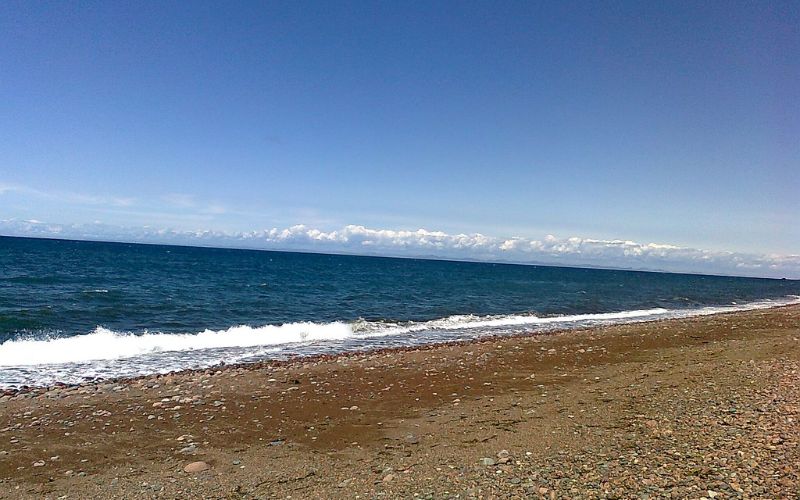Brian Lenihan and John Gormley, the minister for finance and minister for the environment respectively, are apparently at loggerheads with Taoiseach (Prime Minister) Brian Cowen over working in conjunction with the opposition parties to hammer out an acceptable budget in December.
On Monday, Gormley, who appeared to have won Cowen around to the idea, said that all-party talks were “already sorted” and that the finances spokespersons of the various parties – – Michael Noonan of Fine Gael, John Burton of Labour, and Arthur Morgan of Sinn Fein – were ready to meet with Fianna Fail and the Greens to discuss the possibility of an agreement on the budget.
As part of that, he was to send the three parties a letter. However, according to The Irish Times, that letter was delayed, apparently because it required Cowen’s imprimatur, and Cowen was dragging his heels on it. Thus, the letter was delayed and the opposition parties seem to have gotten cold feet.
According to The Irish Times, “The one-page letter suggests a three-step engagement. The first is the existing common view shared by the main parties that the national deficit has to be reduced to 3 per cent by 2014. The second is the decision by Government to allow the Opposition to have full sight of the national finances and to get comprehensive briefing from senior officials in the Department of Finance, a process that is ongoing this week. The third step is the invitation for an all-party meeting ‘without preconditions’.”
Fine Gael, Labour and Sinn Fein appear to have rejected this now, with a Fine Gael spokesperson saying that the initiative had been ‘confused and unhelpful.’
In the past week, the issue of a national government, a unified alliance to handle the economic crisis, found little agreement, either within Fianna Fail or without.
For starters, the three Government ministers who spoke about it – Cowen, Lenihan and Gormley – all seemed to be on different pages. On Friday, Cowen, suggested that, while all-party talks would be welcome, he suggested that opposition parties come up with their own proposals for the budget. This was interpreted by The Irish Times as a slap-down as Gormley’s vigorous calls for the creation of an all-party forum to discuss a four-year plan to deal with the financial meltdown, saying “If words have any ordinary meaning, the Taoiseach, Brian Cowen, is saying No to his Coalition partner, John Gormley.”
However, by Saturday, the minister for finance, Lenihan, had swung in behind Gormley’s idea, though he did not fully endorse the idea of an all-party forum.
On Saturday evening, he told the Sunday Independent that he "would very much welcome anything that might lead to a united national effort to deal with our difficulties" and that he would welcome "all-party discussions". On Sunday morning, he told RTE Radio One’s This Week programme that “We’re sharing the economic analysis with the other parties. I think it would be very helpful if we could share that sense of a common analysis of what the problem is because if all of the parties subscribe to a common analysis of the economic problems, it will be much easier to secure a united national effort behind jobs, and growth and budgetary correction.”
By Monday morning, Cowen had apparently come around to the idea of all-party talks. Though he made no official statement on the matter, John Gormley claimed that the Taoiseach had been misinterpreted. "He has a style of delivery, sometimes, which is less than effusive," Mr Gormley said, adding that the Taoiseach was “on board”.
It appears now that Gormley spoke too soon. And the opposition parties, too, have given in to their suspicion of the detente. On October 5, Fine Gael definitively ruled out the idea of a new Tallaght Strategy – that is, an official détente between the opposition and the government to allow legislation to pass through without logjam in parliament, as was attempted in 1987 when Fianna Fail’s Charlie Haughey was Taoiseach and Alan Dukes was leader of Fine Gael. Fine Gael’s main fear, according to current party leader Enda Kenny, was that the 1987 Tallaght Strategy cost Fine Gael votes, a proposition they cannot afford with Labour now the most popular party in Ireland according to opinion polls
And on Sunday, according to a report in the Sunday Independent, an unnamed Fine Gael member as saying that the consensus talks were regarded as a means to “suck them (the opposition) into the mess.”
On Monday, Gormley, who appeared to have won Cowen around to the idea, said that all-party talks were “already sorted” and that the finances spokespersons of the various parties – – Michael Noonan of Fine Gael, John Burton of Labour, and Arthur Morgan of Sinn Fein – were ready to meet with Fianna Fail and the Greens to discuss the possibility of an agreement on the budget.
As part of that, he was to send the three parties a letter. However, according to The Irish Times, that letter was delayed, apparently because it required Cowen’s imprimatur, and Cowen was dragging his heels on it. Thus, the letter was delayed and the opposition parties seem to have gotten cold feet.
According to The Irish Times, “The one-page letter suggests a three-step engagement. The first is the existing common view shared by the main parties that the national deficit has to be reduced to 3 per cent by 2014. The second is the decision by Government to allow the Opposition to have full sight of the national finances and to get comprehensive briefing from senior officials in the Department of Finance, a process that is ongoing this week. The third step is the invitation for an all-party meeting ‘without preconditions’.”
Fine Gael, Labour and Sinn Fein appear to have rejected this now, with a Fine Gael spokesperson saying that the initiative had been ‘confused and unhelpful.’
In the past week, the issue of a national government, a unified alliance to handle the economic crisis, found little agreement, either within Fianna Fail or without.
For starters, the three Government ministers who spoke about it – Cowen, Lenihan and Gormley – all seemed to be on different pages. On Friday, Cowen, suggested that, while all-party talks would be welcome, he suggested that opposition parties come up with their own proposals for the budget. This was interpreted by The Irish Times as a slap-down as Gormley’s vigorous calls for the creation of an all-party forum to discuss a four-year plan to deal with the financial meltdown, saying “If words have any ordinary meaning, the Taoiseach, Brian Cowen, is saying No to his Coalition partner, John Gormley.”
However, by Saturday, the minister for finance, Lenihan, had swung in behind Gormley’s idea, though he did not fully endorse the idea of an all-party forum.
On Saturday evening, he told the Sunday Independent that he "would very much welcome anything that might lead to a united national effort to deal with our difficulties" and that he would welcome "all-party discussions". On Sunday morning, he told RTE Radio One’s This Week programme that “We’re sharing the economic analysis with the other parties. I think it would be very helpful if we could share that sense of a common analysis of what the problem is because if all of the parties subscribe to a common analysis of the economic problems, it will be much easier to secure a united national effort behind jobs, and growth and budgetary correction.”
By Monday morning, Cowen had apparently come around to the idea of all-party talks. Though he made no official statement on the matter, John Gormley claimed that the Taoiseach had been misinterpreted. "He has a style of delivery, sometimes, which is less than effusive," Mr Gormley said, adding that the Taoiseach was “on board”.
It appears now that Gormley spoke too soon. And the opposition parties, too, have given in to their suspicion of the detente. On October 5, Fine Gael definitively ruled out the idea of a new Tallaght Strategy – that is, an official détente between the opposition and the government to allow legislation to pass through without logjam in parliament, as was attempted in 1987 when Fianna Fail’s Charlie Haughey was Taoiseach and Alan Dukes was leader of Fine Gael. Fine Gael’s main fear, according to current party leader Enda Kenny, was that the 1987 Tallaght Strategy cost Fine Gael votes, a proposition they cannot afford with Labour now the most popular party in Ireland according to opinion polls
And on Sunday, according to a report in the Sunday Independent, an unnamed Fine Gael member as saying that the consensus talks were regarded as a means to “suck them (the opposition) into the mess.”




Comments